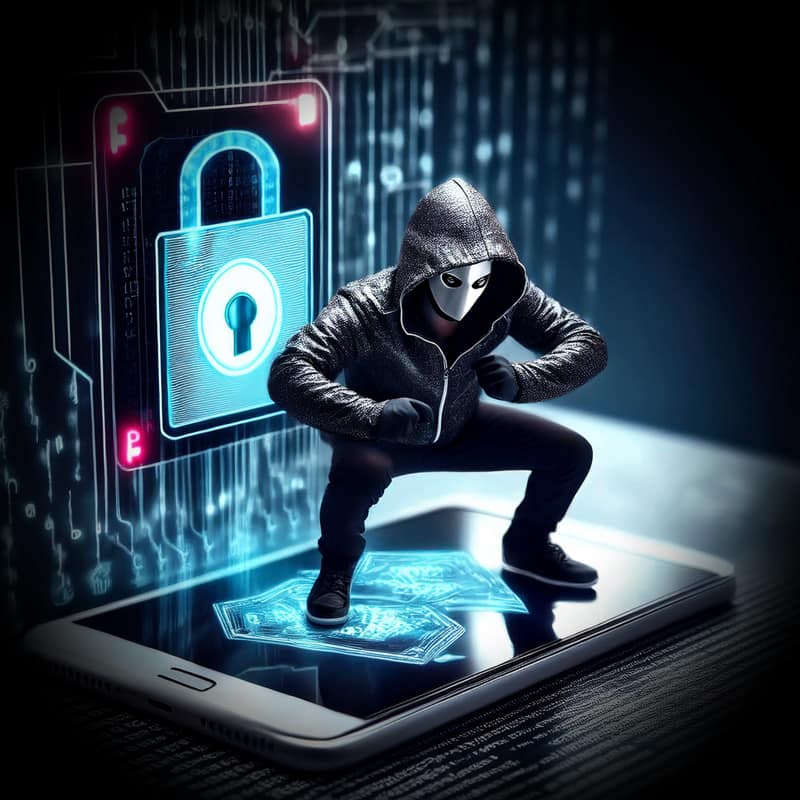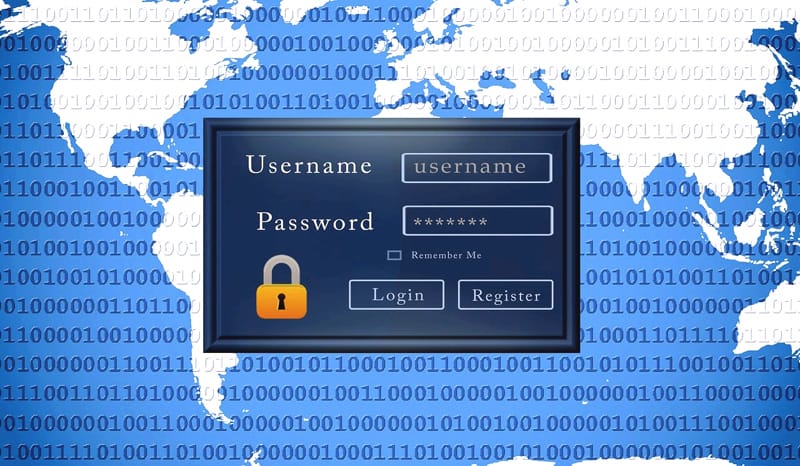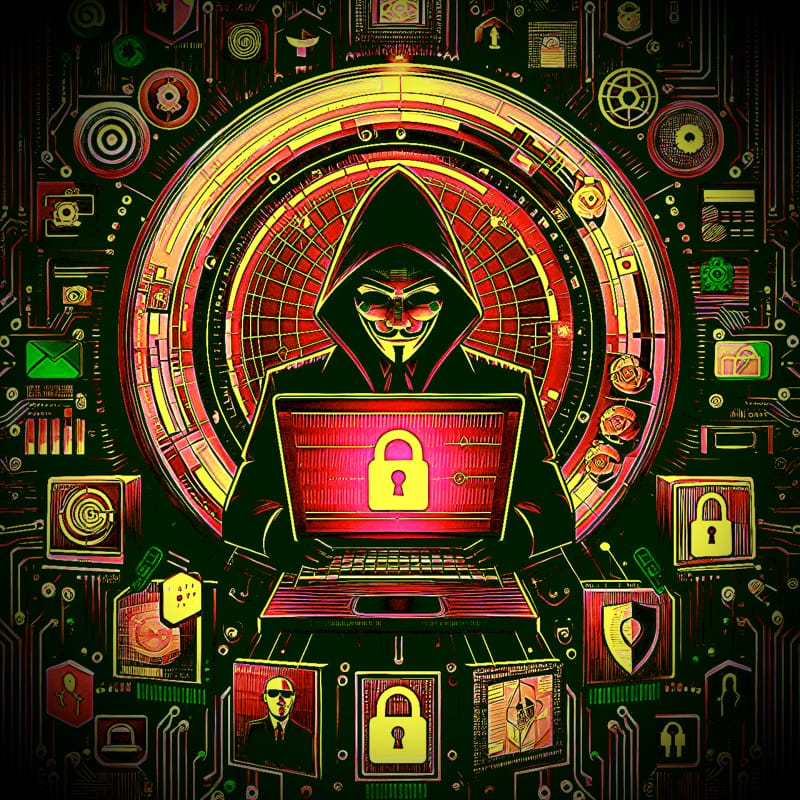I came to write this post after hearing about users complained about having money missing from their digital wallet.
Digital payments are becoming very popular in many countries. A few taps on an app and you can even transfer a sum of thousands to another party.
Thus, it is crucial that you understand some essential cybersecurity aspects of using digital wallets. The tips recommended here should be applicable to either digital wallets that store fiat money or crypto.
Never Link A Credit Card To Your Digital Wallet
Stealing credit card details have always been one of the top objectives of hackers and thieves. They are very persistent in their criminal acts because many users find it convenient to link their credit cards to their digital wallets.
However, linking your credit card can be very risky because:
- If a hacker gains access to your digital wallet, they can silently use your credit card details to make transactions without your knowledge. Unfortunately, 2FA has been known to be not totally effective against all forms of unauthorized transactions.
- Digital wallets commonly allow you to connect to third-party merchants that offer various services. You never know which of the merchants might store your credit card details. The third-party merchants can be your bank, telco or insurance provider, shopping websites, Google Play, Apple Store, etc.
Without a linked credit card, you would need to manually top-up the amount stored in your digital wallet. It is a little bit inconvenient, but it is a better cybersecurity practice.
You should also check your withdrawal limit and adjust it to your needs. Shockingly, digital wallet providers may set a large sum as the limit by default.
If you must link a card, use a prepaid cash or debit card instead with limited amount that you are prepared to lose.
Activate 2FA (2-Factor Authentication) For Your Digital Wallet
As mentioned above, unfortunately 2FA has been known to be ineffective against some hacks. Many users have been left bewildered by having money stolen from their digital wallet or banking apps despite having 2FA activated.
Nevertheless, you should still activate 2FA whenever the app allows you to do so. As a friend once told me about having extra security even if it is not totally effective – “It’s better than nothing”.
Most digital wallets should offer 2FA options such as PIN code, SMS verification or a code sent to your authenticator app. Just take some time to browse through the security options in your digital wallet.
Use A Strong and Unique Password
Using a strong password is reiterated in my other post on how to prevent hacking risk. Your password is basically the first line of defense against unauthorized logins into your digital accounts.
Back in the early days of our digital age, throngs of users rely on simple and easy to remember passwords because it is convenient. However, such convenience comes at the risk of having your accounts easily breached by malicious parties.
A popular cyberattack method called brute-force is commonly deployed by hackers to attempt a breach into digital accounts. If the cyberattack is successful, it can guess a simple password within minutes or even seconds.
Therefore, it is crucial that you use a strong and unique password, especially for each of your digital account (including your digital wallet) that stores financial and sensitive information.
Strong passwords should contain:
- 12 to 16 characters long.
- Uppercase and lowercase letters, numbers, and symbols.
- No words found in the dictionary.
- No personal information (e.g. name, birthdate, phone number, etc).
Tech Tip: Never reuse the same password for multiple online accounts. Doing so will make it very easy for the hackers to access your other accounts if they managed to get their hands on your password.
You may use a password manager to automatically generate and save a strong password for you. There are also free password generators online.
Alternatively, you can save your passwords in an offline file and secure it with encryption. If your do not require exceptional high levels of security, you can encrypt and password protect your sensitive files with free tools such as 7-Zip or BitLocker that comes with Windows Pro.
Tech Tip: Protect your online privacy.
A lot of what you do online is tracked. There is no way to completely block or avoid all Internet trackers, but you can at least use a Virtual Private Network (VPN). Use my affiliate link below to get your VPN offer and I may get a commission if you make an online purchase at Namecheap’s website.
Start your free trial with Namecheap FastVPN!

Digital Wallet Security Tips
Always Keep Your Digital Wallet Software Updated
In most instances, the updates that your apps receive are to fix security vulnerabilities and improve protection.
If the hacker managed to find a loophole to gain access into your apps, they can inject a malware into your device to silently steal personal details from your device.
Therefore, if you don’t update your digital wallet regularly, hackers can exploit weaknesses in outdated versions.
It is also very important to regularly update the operating system of your mobile device. If there is a security vulnerability in your operating system, the hacker may exploit that weakness to gain access into your digital wallet or other finance apps.
Here are just some simple cybersecurity steps with regards to updating your apps.
- Make sure you turn on automatic updates if available.
- Always download updates from official sources (Google Play Store, Apple Store, or the official website).
- Never entertain request to login or update your apps that comes into your email inbox or SMS. If you do encounter such emails, it is almost a certainty that they are fake emails with malicious intent to phish your personal details.
Store Your Cryptos In A Cold Wallet
If you have just begun to get your feet wet in the crypto world, then you might have heard about how you should avoid keeping all your crypto funds in an online wallet (hot wallet).
This is because a hot crypto wallet is always connected to the Internet and any apps that are always online carry a risk of being hacked. This includes your digital wallet, which is actually always online on the provider side even if your phone is switched off.
This constant risk of hack on any online systems is why I recommended above to not store large amounts of money in your digital wallet or link a credit card to it.
Therefore, crypto investors always advise to store most of your cryptos in a cold wallet. A cold crypto wallet typically comes in the form of a USB drive and is offline except when you are using it to conduct online transactions.
Here are just some simple reasons why you should keep most of your cryptos in a cold wallet:
- Cold wallets cannot be hacked remotely since they are offline.
- You have full control over your private keys.
- It’s the safest way to store large amounts of crypto (you are your own bank).
After this post, please feel free to also read some of my posts about Web3, cryptos and Bitcoin.
Be Wary Of Phishing Scams
Last but certainly not the least, you must always be on guard against all forms of phishing scams.
Phishing basically involves tricks where scammers pretend to be a legitimate company or authorities to steal your login credentials. Remember that your login credentials go beyond just your password.
Scammers may devise a fearsome story to trick users into divulging their 2FA codes or they may also sweet talk you into giving them your secret code.
Phishing scams are typically found in fake emails or calls purported to be from a legit company or government authority. They are also frequently found in social media’s internal messaging systems and maybe even in your digital wallet’s messages.
There will be too much details to cover if you want a thorough knowledge of phishing scams.
So, here are just three essential steps that you should habitually do in order to avoid getting tricked by phishing scammers.
- Never click on links in messages or emails before checking if the URL is legit.
- Always check the website’s URL before entering login details.
- Make it a habit to go directly to the website by entering the URL in your browser rather than use links.
Conclusion: Be Vigilant Online To Stay Safe
Securing your digital wallet or crypto wallet doesn’t have to be complicated. By following these simple steps, you can significantly reduce the chances of being hacked or scammed.
Quick Recap:
- Never link your credit card directly to your digital wallet.
- Always activate Two-Factor Authentication (2FA).
- Use strong and unique password for each digital wallet.
- Be cautious of third-party apps that are connected to your digital wallet.
- Keep your digital wallet software updated at all times.
- Store large amounts of cryptos in a offline cold wallet.
- Avoid phishing scams by carefully verifying sources.





